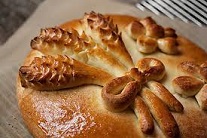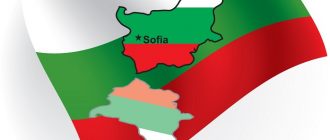Are you interested in discovering how Christmas is celebrated in Bulgaria? Do you want to learn about Bulgarian Christmas Traditions? Read our guide for more facts and information…
In Bulgaria and around the world the celebration of Christmas is primarily founded on religious beliefs and the celebration is then enhanced with village practices and traditions. The Bulgarian celebration of Koleda mixes the orthodox religion of the region with the traditional folk beliefs of the people. The celebration includes tributes to Jesus Christ’s birth and his sacrifice but also more modern celebrations such as Christmas trees and carolling. The celebration of Koleda in its purest form follows the practices of the Eastern Orthodox Church; however, like many other religious holidays in modern times, practices outside of religion have been added to the celebration.
Christmas Traditions
The traditions are an integral part of the celebrations of the festive season; the traditions include fasting, enjoying special meals, and singing carols around the village. In many small towns in Bulgaria the young men of the town dress in costume in the times leading up to the holiday and perform songs for the rest of the villagers. Sadly, as the population has moved into larger cities this tradition is being lost as the practice is difficult to maintain in metropolitan centres.
Family is also an important aspect to the Christmas celebrations in Bulgaria and traditions have emerged over time to promote family togetherness. Not only do families gather around their Christmas trees but they also partake in the tradition of Sooroovachka. The practice of Sooroovachka is a tradition where the younger members of the family, such as children and grandchildren pat the elder members of their family while making wishes of health, wealth, and happiness for them in the upcoming year. The patting is not done with the hand but rather with a specially prepared stick.
The Bulgarian Christmas practices have also led to a tradition that continues throughout the year: the announcement of a child’s birth the day afterwards. It is believed in the country that Christ was born on Christmas Eve rather than Day and that Mary waited one day before announcing his birth; as a result Bulgarian birthdays are one day after the official day of birth.
The Food
During the 40 days of advent leading up to Christmas the people of Bulgaria partake in a fast; the fast used to be a traditional fast where all animal products were given up but now the fast has transformed into an act similar to a westernized lent where each individual gives up a personal activity or vice. Today, animal products including meat, cheese, yogurt, milk, etc., are still absent from the Christmas Eve meal as this meal is entirely vegan with meat returning on Christmas Day. The meal of Christmas Eve also reflects on the past year as the meal consists of 12 unique dishes with each one representing a different month of the year. It is also a tradition in some regions to insert a piece of silver into a piece of bread and it is said to bring good fortune for the year to the one who finds it.





